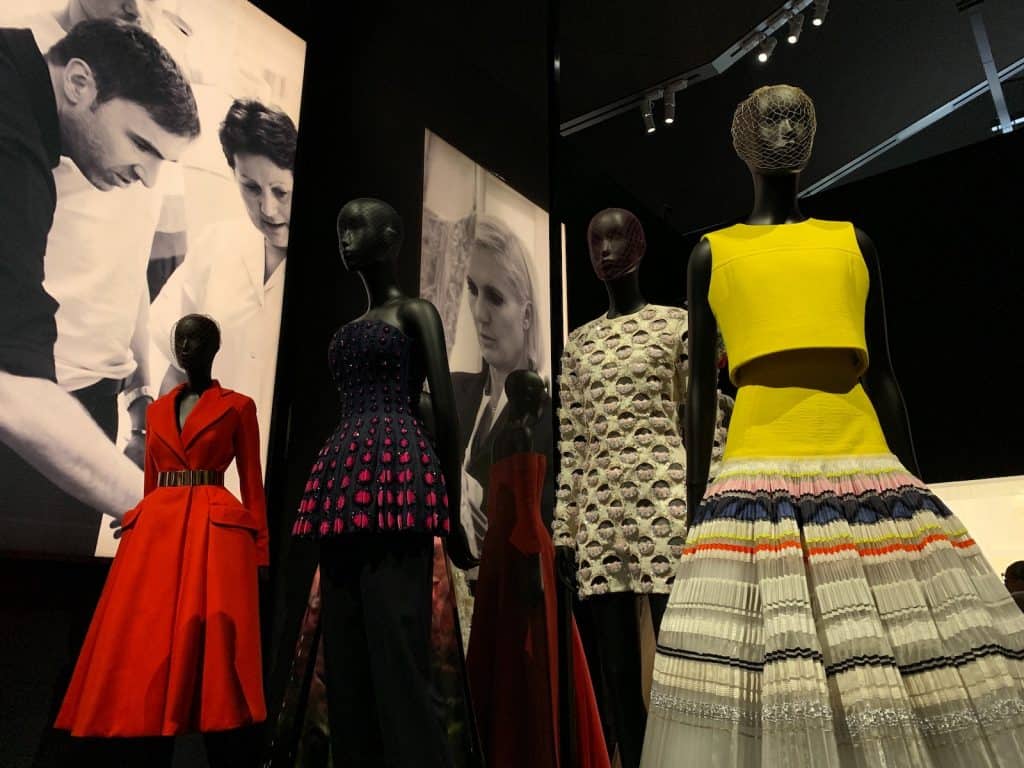Artificial Intelligence in Fashion? It’s true! Learn a few ways AI is revolutionizing the fashion industry.
Artificial Intelligence in Fashion
Most people grew up thinking that artificial intelligence is something we would only see in movies. As it turns out, AI is indeed real, and it helps more than we could have ever thought. We as humans make mistakes in our day-to-day tasks, especially in the fashion industry. We may miss a stitch or two in the sewing room or cut the fabric wrong and have to start completely over on a dress that took days to complete already, causing frustrations and disappointment in the manufacturing department. This is where AI comes in. Fashion and artificial intelligence is a new partnership that is sure to do nothing but succeed for years to come.
AI in Fashion – Manufacturing
In manufacturing anything, the time it takes to make something matters more than the product itself. When people are rushed to fill an order or hit their quota for the day, they may miss something crucial, messing up the product altogether. AI takes that problem and makes it disappear. Whether it is stitching fabric together or making sure the design’s colors will match the fabric, AI ensures that everything will be perfect. The AI used will do tasks that take people a long time to perfect and do it with the speed and accuracy that others only dream of performing. AI is cost-effective because it doesn’t ask to be paid overtime and will get the job done better than an entire room of workers.
AI in Fashion – Design
Fashion brands around the world are implementing AI into their design process. They collect data on customers to find what better suits them. They help customers choose clothes based on the fabric, colors, and preference of style. When humans are in this role, many of their personal preferences go into how they help others. AI has no “favorite color,” for instance. They will only choose what best fits the customer. They help customers design precisely what they envision in their minds, and it is changing the way the fashion industry designs perfectly personalized products. Whether it is a business suit or embroidery t-shirts, AI will get you exactly what you want.
AI in Fashion – Merchandising

Artificial intelligence has made Virtual Reality successful when it comes to buying clothes both in-store and online. Anyone looking for a specific dress or shoe can chat with an AI assistant and find what they need. They can access “Chatbots” through an app or the company’s website and receive help wherever they are.
AI in Fashion – Inventory
AI adoption is changing how stores keep up with what they have and don’t have. Before AI merchandise, inventory would often get overlooked, resulting in a loss of profits. With AI, brands can calculate fashion trends and give retailers the upper hand by suggesting certain products to be brought out for display at just the right time where people are looking for the most fashionable pieces of the season.
In-Store Enhancement
Fashion brands are using smart mirrors to make customers have a top-notch experience. Customers can look in the mirror and virtually try on different clothes and shoes without the need for dressing rooms. The mirror gives customers the best look possible by doing side-by-side comparisons to multiple garments and changing the colors to see which shade better suits their skin tone, body shape, and what makes a better match for an outfit.
The Future of Fashion
As far back as we can remember, the fashion industry has remained one of the top money-making industries in the world. Everyone wears clothes, and most want the best of the best style. Artificial intelligence will do nothing but make everything better, from the factories to the shelves. Making AI a part of our everyday shopping experience helps the company learn what people do and do not like and make sure the customer gets exactly what they are looking for. It is estimated that artificial intelligence will bring the fashion industry to 7.3 billion by 2022 and will only continue to grow. Being able to predict accurate fashion trends will help companies sell their already made apparel and help create new looks that they don’t already have. The customer is the key, and AI helps bring the customer exactly what they want or helps them figure out what they want. This ensures that consumers leave happy and keeps them coming back every season to update their seasonal look.
AI in Fashion – Final Thoughts
Some say that technology will be the downfall of everyone, but in the fashion industry, there is only room for improvement. Using AI cuts down the number of errors, shows the company and the customers what is in style, and helps predict what will be in style. All-in-all artificial intelligence will keep fashion at the top of its game, making sure we all look our very best.
FAQ
A: AI is being used in the fashion industry in various ways. Some examples include virtual try-on technologies, personalized recommendations, trend analysis, inventory management, supply chain optimization, and fraud detection.
A: The benefits of AI in the fashion industry include improved customer experience through personalized recommendations and virtual try-on, enhanced operational efficiency through optimized inventory management and supply chain, better trend forecasting and design insights, and increased fraud detection and prevention.
A: Yes, AI can contribute to sustainable fashion practices. It can be used to optimize production processes, reduce waste, analyze and minimize environmental impacts, support ethical sourcing and labor practices, and enable circular economy initiatives in the fashion industry.
A: AI is not expected to replace human designers in the fashion industry but rather augment their capabilities. AI can assist designers in generating new design ideas, pattern recognition, fabric selection, trend analysis, and rapid prototyping, enabling designers to be more creative and efficient in their work.
A: Ethical concerns related to AI in the fashion industry include issues such as data privacy and security, algorithm bias, labor implications, and sustainability practices. It is important for companies to address these concerns and ensure responsible and ethical use of AI technologies in the fashion industry.

